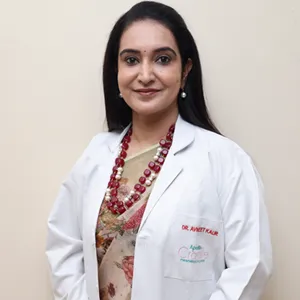Retinopathy of Prematurity (ROP) is a condition that affects the retina or the light-sensitive tissue at the back of the eyes. It usually occurs in premature babies when the blood vessels in the retina do not develop properly, leading to scarring or detachment of the retina. If the condition is not treated on time, it can cause vision loss or blindness.
ROP Screening is a procedure that detects and monitors the development of ROP in premature babies. Ophthalmologists perform this screening to see the signs of ROP. It is essential to note that babies should weigh less than 1501 grams at birth or born before eight weeks are eligible for this screening.
Preparing For ROP Screening
An hour before the screening or procedure, parents are recommended not to feed the infant to avoid undue vomiting or chances of aspiration. To prepare parents in advance, clear instructions will be provided to the nursing staff. They will be asked to instil a Mydriatic eye drop thrice at a ten-minute interval, half an hour before the test.
What To Expect From ROP Screening?
During the ROP Screening, an ophthalmologist will use a special instrument called a retinoscope to examine the infant's eyes. They also use a speculum or indentor to hold the baby's eyelids and rotate to the eye to get a better view of any abnormalities or problems with the blood vessels.
The ophthalmologist will try to complete the screening quickly to avoid making babies uncomfortable. The nurses on the unit will also ensure to prepare the baby appropriately before the screening to avoid causing any pain or discomfort to the infant.
Possible Results Of The ROP Screening
When the baby is about four to six weeks old, the first screening will be performed. While some will require only one ROP Screening, others have to undergo at least two screenings.
After the screening, the ophthalmologist will detect the possible results. Depending on these results and ROP severity, he will proceed further.
- If a mild ROP is detected, a follow-up examination is necessary after one or two weeks. This follow-up examination is conducted to ensure that the condition has not become worse.
If the ROP is detected and is severe, a re-examination will be performed in a week
Request an appointment at Apollo Cradle, DELHI-NCR - Moti Nagar. Call 1860-500-4424 to book an appointment.
The ROP screening should be completed before 30 days of the life of premature babies. Since the condition can progress rapidly in just two to three weeks, the doctors recommend the baby undergo two to three checkups during that period.
The cause of ROP is not known. However, it is said that when a baby is born early, the retina's blood vessels are underdeveloped. After birth, the blood vessels began growing abnormally, creating scar tissue. If this scar tissue is severe, it can damage the retina. Therefore, the primary cause of ROP is prematurity. The cause and severity of ROP also depend on the amount of oxygen treatment required or the baby's general condition. However, some babies with no serious illness or issues develop ROP, while others do not. Therefore, the doctors think it safe to screen all the babies born before eight weeks or weigh 1501 grams during birth.
Screening for ROP is not harmful to babies. However, doctors will decide to postpone the examination for a short time or until the baby is strong enough to under the procedure.
The baby will be discharged as soon as they are healthy to go home. It can be before the last eye screening. However, the doctor may recommend you bring the baby back for a follow-up examination.
The most effective option for ROP treatment is Laser Therapy. With the help of this treatment option, the retina's avascular periphery is burned away. It also reduces VEGF production, a crucial factor for the growth of abnormal blood vessels. All the babies undergoing this treatment will require follow-up.

 92% Patient Satisfaction Score
92% Patient Satisfaction Score




